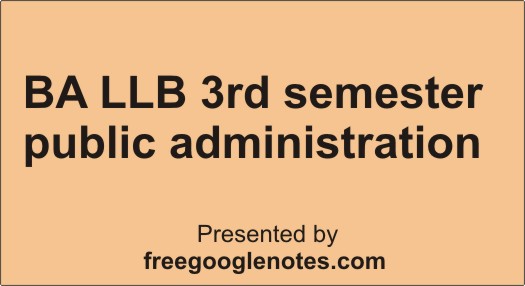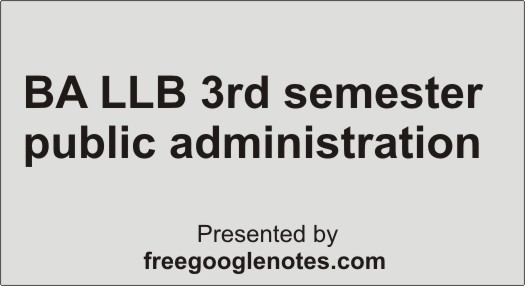Table of Contents
International Economic order notes
for more, you can follow @blogger_priya
What do you mean by the new International Economic Order? Explain its goals and means.
There has been a yawning gap between the developed and developing countries. Of the estimated 4,000 million people inhabiting the world 1,200 million live in countries where per capita GNP is less than $ 2000 a year. On the other end, a minority of around 600 million live in countries where per capita GNP range between $ 2000 to 5600. Another 12,000 million live in countries where per capita GNP levels range between $200 to 2,000. The economy of the gap is further illustrated by the fact that in South Asia alone half of the population below a stringently drawn poverty line. The Less Developed Countries (LDCs) have been making persistent demands for introducing fundamental reforms in the economic, commercial, and financial relationship between themselves and the developed countries.
The developing countries raised the questions of establishing the New International Economic Order (NIEO) and demanded restricting of International economic relations on just, democratic principles on the basis of full equality. They asserted their determination to dispose freely of their own national resources. In view of the persistent demand from the developing countries for restricting the economic system in 1973, the UN General Assembly adopted Resolution No. 3171 which acknowledged the right of the states to nationalize foreign property and determine the form and size of compensation. In 1974. the General Assembly reaffirmed the right of each state to regulate and control the activities of the Transnational Corporations in its territory and adopted the Charter of Economic Rights and duties of the States.
On 1 May 1974, the General Assembly in the face of opposition from the United States and other Western powers adopted the Declaration on the Establishment of a New International Economic Order by an overwhelming majority. The Declaration stipulated the principles on which international economic relations should be based. The main principles emphasized by the declaration were sovereign equality states, their territorial integrity, non-interference in the internal affairs, equal participation of all the states in the solution of the world economic problems, the right to adopt an economic system of their own choice, inalienable and permanent sovereignty of each state over their natural resources and all economic activities, including the right of states, peoples, and territories under foreign domination to reimbursement and full compensation for the exploitation, depletion, and damage caused to their natural and other resources, etc. The Declaration laid down a solid international legal basis for the establishment of truly equal international economic relations, meeting the interests of all states and people. The Assembly also adopted a Programme of Action which outlined specific steps for the implementation of the Declaration. In 1975, the General Assembly at its 7th Special Session in the course of discussion on ‘Development and International Economic Cooperation’ reiterated the demand for the acceleration of the implementation of the decision of the General Assembly taken at the earlier session. Thus the General Assembly in the 6th and the 7th Special Session accepted the need for restructuring of the international economic relations on a democratic basis. However, it failed to take any concrete measures of the implementation of these decisions due to obstructions posed by the USA and other western powers. The year 1976 was marked by UNCTAD-IV holding a meeting in Nairobi (Kenya) in the month of May and beginning of the deliberations of the Conference on International Economic Co-operation also known as North-South Conference meeting in Paris originally scheduled to énd in December 1976 but reconvened for a final session at the end of May 1977.
The call for New International Economic Order is base on the assumption that the prevalent international order perpetuates and aggravates international inequalities and that the new relationship of interdependence should replace the older pattern of dependence and unequal exchange. it is argued by the advocates of New International Economic Order that the rich developed countries are morally obliged to increase and facilitate the flow of resources to less developed countries and that it is in their self-interest to encourage the promotion of growth and development of the poor countries in order to expand their markets.
The less developed countries hold the view that the Developed countries must recognize the growing power of the commodity producers as evident from the success of the Organisation of Petroleum Exporting Countries (OPEC) in raising oil prices, and accept that the locus of power has inclined in their favor.
The spirit of the New International Economic Order is envisaged in the Charter of Economic Rights and Duties of States adopted by the UN 27th General Session on December 12, 1974, assuring its main objectives.
“The achievements of more rational and equitable international economic relations and the encouragement of structural changes in the world economy, the creation of conditions which permit the further expansion of trade and intensification of economic co-operation among all nations, the strengthening of the economic independence of developing countries, the establishment and promotion of international economic relations taking into account the agreed difference in the development of the developing countries and their specific needs.”
The New International Economic Order embodies exhaustive and ambitious proposals. The main objective is no less than the creation of a new structure of economic relationships, warranting fundamental changes in a large number of related fields-commodity trade, market access, and preference, ais flows, the activities of multinational corporations, the international monetary system, the restricting of international institutions the transfer of technology, etc.
Goals and Means
New International Economic Order deals both with goals and means. The goals which are rather more evident from all the UN Conference held on this issue, lay emphasis on the desire for a more Just distribution, of world economic resources among the countries-rich as well as poor.
(i) In the wake of the crisis in 1973, the OPEC countries with a little below 300 million people have been able to raise their incomes Sharply. The rest of the poor countries with about fīve times people have rather been placed in a more precarious position. The oil crisis helped only a handful of countries-some of whom were already rich-whereas the vast majority lost by it. The poor remain poor. The “25 poorest countries” are mentioned in world forums but no practical action has so far been initiated to help these nations. Besides the need of making NIEO’s benefits available to the poorest states has not been given a serious thought. The developed countries are putting up firm resistance against it. Another reason is that the less developed countries have already suffered so much at the hands of superpowers that these states now stand inflexibly so much at the hands of superpowers that these states now stand inflexibly on the principles of sovereignty and do not allow any foreign country or the UN to interfere in their internal affairs.
(ii) Mini-Income Target. The New International Economic Order has forth another goal to create a material minimal standard of living, a mini-income of those who are facing harsh economic realities. Its purpose is to persuade the rich countries to aged to various reforms in the international economy. As owing to various reasons, the principle of sovereignty will play a decisive role in relation to the UN also in the near future, such a goal should practically imply that the rich countries accepted such reforms within NIEO which would be instrumental in creating a mini-income for the poorest countries and that their aid for development would be channeled to poorest countries and that their aid for development would be channeled to poorest countries and in particular to those countries which carry out a conscious policy of leveling and justice inside their own borders.
Even Henry Kissinger, the US Secretary of State, in a speech to the Seventh extraordinary General Assembly of the UN said, NIEO advocated the principle of a minimum standard of living. He opined that international co-operation must be directed to the problem of creating a secure basic economic security for all and this “challenge is above ideologies and block politics. No international order can be considered just if co-operation with the aim to raise the poorest of the world to a decent standard of living is not one of the basic principles.” The endeavor to create a ‘mini-income for all people irrespective of which country they hail from, would become the people guidelines, the foremost goal is the work to create New International Economic Order.
(iii) Parts and the Wholes. There are three parts of an entity embodying NIEO. The first is to the extent to which the developing countries can force the rich countries to a more just distribution of world income than the one we have today. For instance, the price policy of the OPEC cartel, which is one stroke was able to redistribute about a couple of percent of world income from the rich to the oil-producing countries. Several raw material countries are dreaming about how by acting in a similar manner, they could from the castles also for other raw materials and force the developed countries to pay many a time higher than that the importers pay now.
The second factor is that of morality that the rich should share their wealth with less developed countries.
The third and most important motive behind the NIEO is of a materially more concrete nature. It emphasizes that it is in the common interest of developing and industrial countries alike to elaborate an NIEO for example both sides can have a common interest in a reaction of the fluctuation of prices of raw materials and therefore, accept certain stabilization agreement if the government in rich countries could come to find that it would be in the interest of the large consumer groups to import cheaper goods from the developing countries although it cold hit home industries and its worker’s problems would have to be solved in another way-through labor market policies.
These three parts-the threats, the morals, and the common interests can be said to be the main parts of the entity called NIEO. However, the entity is greater than and different from the parts comprising it.
The Means
The means for releasing the NIEO are basically instruments of economic policies which can be mutually devised by the developed countries and less developed countries. The NIEO can be realized through international trade. The LDCs want better financial possibilities to develop their economies. They want to have a greater inflow of one of the most dynamic development factors-science and technology-and at the same time these countries opt for exercising control over its composition. The developing countries aspire for acquiring help as well as industrialization and development in the agricultural sector. Besides, these countries want a greater formal as well as real power in the decisive institutions which govern the international economic development especially the entire UN system. The prominent means through which NIEO can be realized are explained below.
(a) Foreign Trade: The major demands of the Ldcs in respect of Foreign trade and they want higher prices on their export good, some sort of guarantee of a similar development for export and import prices, and better possibilities for facilitating admission, to the markets of the rich countries.
The case of an export cartel of the OPEC countries, with a four-fold doubling of the oil prices, has provided an impetus to the developing countries. It has motivated the raw material exporting countries to search out the possibilities of creating other cartels for raw materials between the developing countries or if this does not work out, at least some sort of international raw material agreement which should provide the developed countries good prices and stability in their countries.
There are possibilities that effective cartels might perhaps be formed in the bauxite or copper production on the model of oil cartels. But it is doubtful if cartel methods would be successful. The case of oil export is, different. Even prior to the oil crisis, the oil export from the oil-producing countries was about 50 percent larger than the sum of the five next most important export commodities of the less developed countries-copper, coffee, sugar, cotton, and natural rubber. Currently, the oil export from the developing countries is almost exceeding the sum of all other export from them. Another factor disfavoring the cartel system is that it redistributes the profits from trade in an unsystematic manner. This system helps only rich countries whereas the countries like India and Bangladesh are losers. Moreover, developing countries are not the only countries that export raw materials. The United States, the Soviet Union, and a host of other developed countries are more benefited from the cartel system than the developing countries.
These are proposals to create raw material agreements between the rich and developing countries. The past experience reflects the unsuccessful mislayer of such attempts. Both rich and poor counties share a common interest in certain stability in price development and perhaps some practical results can be worked out in this direction. The expectations that such stabilization agreements at the same time should envisage a price policy that severely redistributes gains from rich to poor countries can not be particularly high. The endeavors to relate import and export price development for the less developed countries with the help of indexing appear to be too complicated to yield quicker results.
Better recourse for the developing countries is open to their own markets in the developed countries for exporting their products. The developed countries can provide protection to the interest of less developed countries. Mutually agreed norms can be worked out with a view to distributing the burden justify.
(b) Development Aid. It is widely argued that the rich countries should contribute on the percent of their total production to the developing countries. The poor countries should share the development expertise of the rich countries. Development aid is a powerful means to realize the objectives of NIEO quicker and sooner.
Another way through which developed countries can help the LDCs is the writing off of old debts or putting a moratorium over them. The poor countries which are mostly indebted too, should in this way get extra assistance, which would be valuable. This type of measure can easily be carried through politically in the rich countries than development and to the same tune.
(c) Science and Technology: The developing countries require and their scientific and technological development technical assistance provides gains and saving which can further be invested in economic development. However, scientific and technological know-how is precisely not under the direct control of the states but under the control of multinational enterprises. These Transnational corporations do not use science and technology in the interest of developing countries but more in their monopolistic interests. A study conducted by UNCTAD reveals that of all patents in the world, about six percent are owned by the less developed countries. Other about 84 percent is owned by the multinational corporations operating in developing countries. And of these only 5 percent is used in production. The Transnational enterprises arc there to thwart the efforts of others from starting production of the goods patented that is a protection against competition. In reality, the patents of the multinational corporations effectively discourage all indigenous nationał efforts in the developing countries to develop their products with the help of modern technology.
The Soviet Union and Japan have made considerable development by copying and imitating foreign techniques. For realizing the objectives of NIEO, it. is necessary that developing countries should scrape the present patent systems and work out norms authorizing the developing countries with rights to produce any technique which they are capable of producing. It has to be ensured that such a system of rules is not exploited by Multinational Corporations.
(d) Industry and Agriculture. Much has been said in the domain of industry and agriculture in the international forums. No new special proposals have come forward in regard to NIEO, It is well known that developing countries want to raise their degree of industrialization. The Process of industrialization cannot be had in isolation. This process entails the involvement of industrialized countries. It is not clear how far these industrialized countries are willing to help and co-operate with the developing countries. The developing countries which share seven percent of industrial production, during the recent session of the General Assembly of the UN, wanted to establish a principle that they (developing countries) should be entitled to “a larger perceptual share of world industrial production” This demand of developing countries was strongly opposed by the representatives of the European Community and Japan. Developed countries were willing to accept only that the developing countries are entitled to a “larger industrial production.”
Agriculture is another realm where developed countries are reluctant to cooperate with the developing countries. The United States has the greatest export surplus which can be used for help in starvation or disaster. This çan perhaps help in feeding the million in the poorest countries. But inside the United States, there are lobbies that hold the view that food assistance to developing countries helps in augmenting population “uncontrollably,” that America cannot alone finance the food deficit of the developing countries. A section in America is of view that the Soviet Union can purchase the whole surplus and that food can be used as a weapon like oil. However, the developed countries can afford to share their food surplus with the poor countries.
(e) Share in Decision-making. The New York Times, in a leading article in May 1975 about how to save UNO wrote, “The reason why the UN General Assembly does not function now is that countries with 10 percent of the world population and 5 percent of its production can marshal as the two-thirds majority in the General Assembly. Half of this number can stop Soviet-American proposal and have done it.” The developing countries have thus great power in the UN General Assembly. But in General Assembly, no real decisions are taken. It adopts only resolution and principles which cannot force others to act on it. However, the powerful bodies where decisions are taken and can be enforced are the Security Council of the UN, the World Bank, and other important economic organizations. The developing countries have little or no power in these important world bodies. These are dominated by the developed countries.
Fresh Resolution By Un General Assembly
In view of the growing demand from the less developed countries, the UN General Assembly adopted a resolution in 1979, which has been described as a watershed in the struggle of developing countries for the creation of New International Economic Order. The resolution emphasized the need for global talks within the framework of the UN on energy, raw materials, trade development, currency, and financial questions. It was expected that the discussion on these subjects should lead the world towards a new economic order. But in view of the opposition of the United States Nations. This resulted in the Cancun Summit Meeting in October 1981. In fact, the idea of holding such a summit meeting was noted by the Independent Commission on International Development Issues heads by Willy Brandt, the Ex-Chancellor of Germany. The Commission had suggested that while detailed negotiations between the two sides should take place in a UN framework, the ground for this should be laid by the north-south summit of manageable size.
In the meanwhile in 1980 the General Assembly noted at its meeting that very limited progress has been made towards the implementation of the 1974 Charter of Economic Rights and Duties of States, it, therefore, passed a resolution re-affirming the Charter and emphasized the need for working towards a new international economic order. The resolution also called for an in-depth review of the implementation of the Charter at the 36th session of the General Assembly in 1981.
Cancun Summit and New International Economic Order
At the Cancun Summit of 1981, the issue of the establishment of NIEO again came for consideration. President Reagan made it amply clear that the USA and other Western powers would take part in negotiations for co-operations for development only if the existing institutions were supported and the developing countries participated and cooperated with these institutions. On the other hand, the representatives of the developing countries insisted that the ultimate authority over global negotiations must be placed in the hands of the United Nations.
Commonwealth Heads and NIEO
In 1981, the Commonwealth Heads of Government in their meeting at Melbourne recommended the constitution of a group 1o review the issue of North-South Dialogue. The group was constituted on 2 February 1982 under the Chairmanship of B… Akporode, Sri Lanka, Singapore, Jamaica, Guyana, and India. The group was asked to review the negotiation process between the developed and developing countries, to examine the principal obstacles which had to date limited success in these negotiations to identify to what extent obstacles were the result of shortcomings in negotiating process, and to suggest improvements which would reduce the obstacles to the negotiating process or problems of institutional arrangement. The group submitted a report entitled The North-South Dialogue Making it Work on 27 August 1982 to Ramphal, the Commonwealth Secretary-General.
In early December 1981, the representatives for the developing countries at the United Nations drafted a resolution for the General Assembly proposing North-South negotiations on restructuring the international economy. However, the United States Government objected to this resolution, on the plea that it posed a threat to the Independence of established economic institutions like the World Bank and IMF Consequently the resolution was not taken up for debate.
In February 1983 the Brandt Commission published its second report entitled “Common Crisis-North; Co-operation for World Recovery”, in which the Commission proposed a series of financial measures to assist the resolution of the current balance of payments debts, and banking crises and to help promote recovery in developing and industrial countries.
South-South Meet or New Delhi Consultations
The origin of the South-South dialogue lies in the failure of the North-South dialogue. As the North did not respond favorably to the demand of the South for a reduction in tariff liberalization, international commodity agreements to stabilize prices, official and at concessional rates, and reforms in the international monetary system, the countries of the South were convinced that there was no common ground between North and South. The thought stand of the United States further confirmed this conviction. Therefore, with a view of the make the international co-operation more efficacious they decided to concentrate on following nine points. (1) Agreement on the immediate launching of global negotiations.
(2) Increasing food production in developing countries
(3) Reversing of the present disturbing trend in the flow of assistance from, the developed to the developing countries.
(4) Strengthening of multilateral co-operation
(5) Devising mechanism to finance the development of energy resources in developing countries.
(6) Speedy adoption and implementation of schemes to lighten the financial burden of increased oil prices and to ensure supplies of aid to developing countries.
(7) Provision of financial support for the balance of payment problem in the transitional stage of oil-importing developing countries.
(8) Reversing protectionist trends and
(9) Development of Solidarity and collection of self-reliance of developing countries to reduce their vulnerability to pressures from the events in affluent continues.
The deliberations, however, showed that the member states were sharply divided and failed to reach any consensus. Differences particularly existed over three facets of the US position. So far the USA, or for that matter, the countries of North had insisted on three conditions, viz.,
(i) there should be a preliminary meet in any of these countries to discuss North-South issues before the matter was taken up at the United Nations,
(ii) the global negotiations should not cover the composition role and functions of the three institutions (the Bank, the IMF, and GATT),
(iii) any resolution adopted by the united nations on the North-South meet New Delhi, a hope was expressed that the exchange of view at New Delhi would enable the group of 77 to discuss and negotiate effectively with the industrialized countries to come to an agreement that the procedure and frame of global negotiations. It was further asserted that the Group of 77 while being firm in approach on matters of principles and substance should be flexible on the strategy and avoid getting bogged down the substance, should be flexible on the strategy and avoid getting bogged down in details and technicalities. It was insisted that a concerted strategy should be adopted on these negotiations in the United Nations.
Commonwealth Heads of Government Meeting at New Delhi 1983.
The problem of New International Economic Order received the attention of the heads of government of Commonwealth countries at its meeting in November 1983 and it adopted a ‘Statement on Economic Action’ which inter alia emphasized “We recognize that there is some difference concerning nature and scale of the reforms and adaptations required in the international economic system. We believe that the situation calls for a comprehensive review of the international monetary-financial and relevant trade issues. An immediate process of preparatory consultation is needed to identify areas of agreement potential agreement and areas requiring further consideration. All the countries affected must be directly involved in the discussion and decision-making. There is a widespread belief among us that will be necessary to discuss these issues at an international conference with universal participation.
The preparatory process could result in consensus on covering such a conference. The meet asserted that Commonwealth can play a useful role, in stimulating more responsive dialogue and decide to establish a Commonwealth Consultative Group for the purpose of promoting a consensus on the issue covered by the above statement.
Despite all these efforts, North-South dialogue could not make such progress and the developed countries showed no intention to give due representation to the developing countries on international trade and aid agencies. On the other hand, the multilateral institutions in which the industrial nations have the decisive say have begun to face new problems especially in regard to resources matching the growing needs. At present the prospects for the evolution of the New International Economic Order are quite bleak, even though some countries of South still nitration the hope that with little patience they would be able to convert the Western government and bring about certain changes in the existing order and make it more fair and equitable:
The question of New International Economic Order was again raised in the United Nations in December 1983 when the developing countries tabled a resolution deploring the activities of certain developed states, which they believed took advantage of their predominant position in the international economy to exert unwarranted pressure or coercion on the sovereign decisions of the developing countries. No wonder the Western powers opposed the resolution.
Thus we find that while the rich capitalist countries are in theory willing to admit that steps are needed to expedite the process of development in the poorer countries they are not willing to replace the existing international economic system. In the light of all this, it seems quite improbable at present that the New International Economic Order would be feasible in the near future unless there is a change of heat in the developed capitalist countries. In the existing climate of economic recession, there is a very faint hope of such a change.








